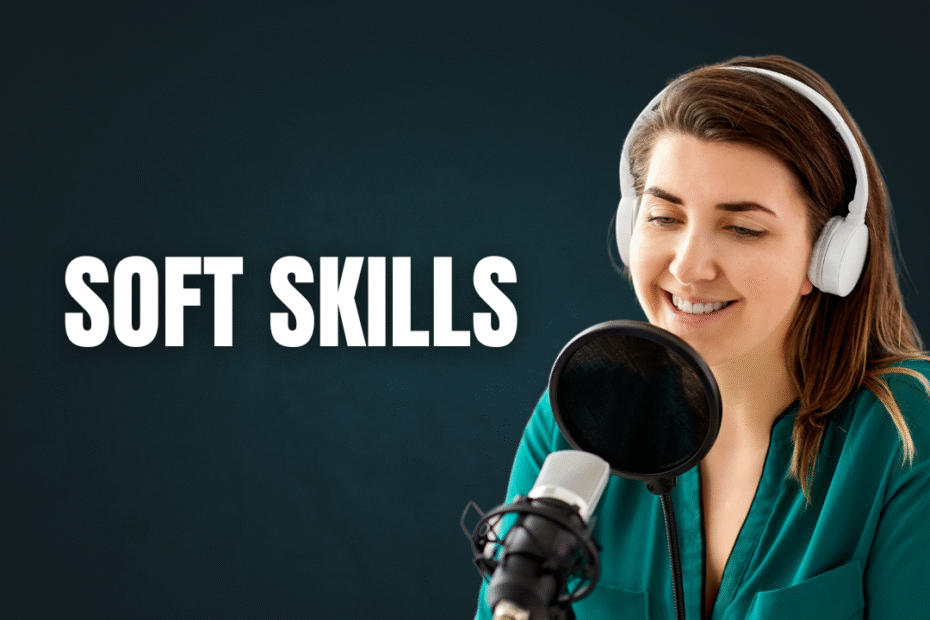Soft skills are the communication abilities, personal qualities and emotional intelligence that empower every individual to interact efficiently and confidently with others. In today’s fast moving world, soft skills are important to learn, they are no more optional.
Whether you’re an entrepreneur, job seeker, student or a freelancer, mastering skills can strongly impact your relationships, career growth overall success.

Hard skills are teachable and more job specific while soft skills are more about how you interact and behave. They are important for leadership, personal development, customer service and teamwork, but they are not easily measured.
This article is completely packed with the information with all relevant information about skills, why they are essential more than ever in 2025, the multiple types of soft skills, and how you can develop them.
What Are Soft Skills?
These are combination of social skills, communication skills, people skills, character attributes and traits. These skills define how well an individual interact and work with others.

Some common skills are listed below:
-
- Critical thinking
-
- Emotional intelligence
-
- Leadership
-
- Time management
-
- Problem-solving
-
- Teamwork
-
- Communication
Hard skills can lead you towards an interview but soft skills define whether you are capable of this job or not. Employers are searching for individuals with professional soft skills because they lead to a more positive and productive work environment.
Importance of Soft Skills in 2025
In 2025, the job market has rapidly transform due to digitalization, remote work and the boom of artificial intelligence. While technical and practical skills are still important, these skills are becoming the discriminating factor between good and great professionals.

Here’s why are they more essential than ever:
1. Automation Can’t Replicate Them
Machine and artificial intelligence can automate programs, coding, repetitive tasks, data analysis and web development. But they cannot replace human creativity, empathy, persuasion and emotions which are essential skills that make us uniquely human.
2. Remote Work Needed Better Communication
With many individuals working remotely worldwide, collaboration and communication have become necessary. Soft skills like virtual etiquette, active listening and clear writing are important for working in distributed workplace throughout the world.
3. Leadership Demands Emotional Intelligence
Professional leaders must understand, motivate and guide their teams. Leadership is not about authority and superiority over team, it’s about decision making, empathy and emotional intelligence. All of these are listed under the category of soft skills.
Types of Soft Skills You Must Develop

Let’s discuss the most important skills you should learn:
1. Communication Skills
Clear communication both written and verbal is the heart of every professional and successful relation. Whether you’re writing an email or leading a meeting, communication is a core soft skill.
2. Collaboration and Teamwork
Even the most skilled and professional individual cannot attain success alone. Teamwork helps corporation to accomplish goals faster. Professionally collaborating with team leads to better outcomes, trust and creativity.
3. Critical thinking and Problem-Solving
Soft skills not only include emotions. Analytical skills like critical thinking help you to evaluate situation effectively, solve problem professionally, and make better decision.
4. Time Management
Being able to meet deadlines, maintain focus and prioritize tasks is a skill that every employer encourages and value. Time management reduces stress and enhance productivity.

5. Flexibility and Adaptability
The ability to adapt is necessary in today’s fast moving world. Whether it’s adjusting to new workplace or learning a new tool, adaptability and flexibility is a top soft skill.
6. Influence and Leadership
Leadership is not only for top level managers. It means guiding others, being accountable and taking initiative. Delegation, motivation and influence are all soft skills related with leadership.
7. Emotional Intelligence
Emotional intelligence is the capability to manage, recognize and understand your own emotions and the emotions of others. It reduces conflict, enhance teamwork and improve relationships.
How Soft Skills Impact Your Career
It play a vital role at every level of your professional journey:

-
- During Interviews: Your efficiency to present yourself, elaborate your thoughts clearly, and connect with the interviewer can make a perfect impression.
-
- At the Workplace: Soft skills like patience, collaboration and conflict resolving abilities can lead to a more productive environment.
-
- In Career Growth: In corporate sector promotions often depend more on communication and leadership than on technical and practical expertise alone.
Research show that 15% of job success comes from hard skills while 85% comes soft skills. These statistics prove that how much soft skills are necessary for success.
How to Improve Your Soft Skills
Developing these skills needs consistency, practice and self-awareness. Here are some ways to get initiated:
1. Seek Feedback
Ask friends, colleagues or mentors for feedback on your emotional response, leadership, and communication. Honest feedback helps you improve more.
2. Take Online Courses
There are numerous paid and free platforms (like LinkedIn Learning, Udemy, Coursera) that offer skills improvement programs.

3. Practice Active Listening
Don’t respond quickly, focus on understanding rather than simply responding. Good communicators are first good listeners.
4. Join Group Activities
Join teams, whether in clubs or in voluntary projects, it improves your leadership and collaboration skills.
5. Reflect and Self-Assess
Take time to analyze your decision and actions. What went well? Any improvement in current project or work?
6. Read Books on Communication and Emotional Intelligence
Books like “Crucial Conversation” or ” Emotional Intelligence “ help to improve professional soft skills.
Soft Skills vs Hard Skills: The Balance
While hard skills are what you know, soft skills are how you apply those hard skills. For example:
| Hard Skill | Soft Skill |
| Marketing | Communication, creativity |
| Project management | Leadership, Time management |
| Data analysis | Critical thinking |
| Programming | Problem-solving |
Both are necessary, but in the long time, soft skills can improve your leadership styles, relationship and personality.
Conclusion: Why You Must Prioritize Soft Skills
In a world driven by automation, constant change and speed, speed, these skills make you more valuable and adaptable human.

Whether you’re a student initiating your journey or a professional want to attain leadership, developing these skills will open doors of many opportunities that technical skills alone cannot.
Remember, tools can be changed, jobs can be replaced, but your ability to lead, solve problems, build relationships, communicate professionally, your soft skills will always remain relevant.
